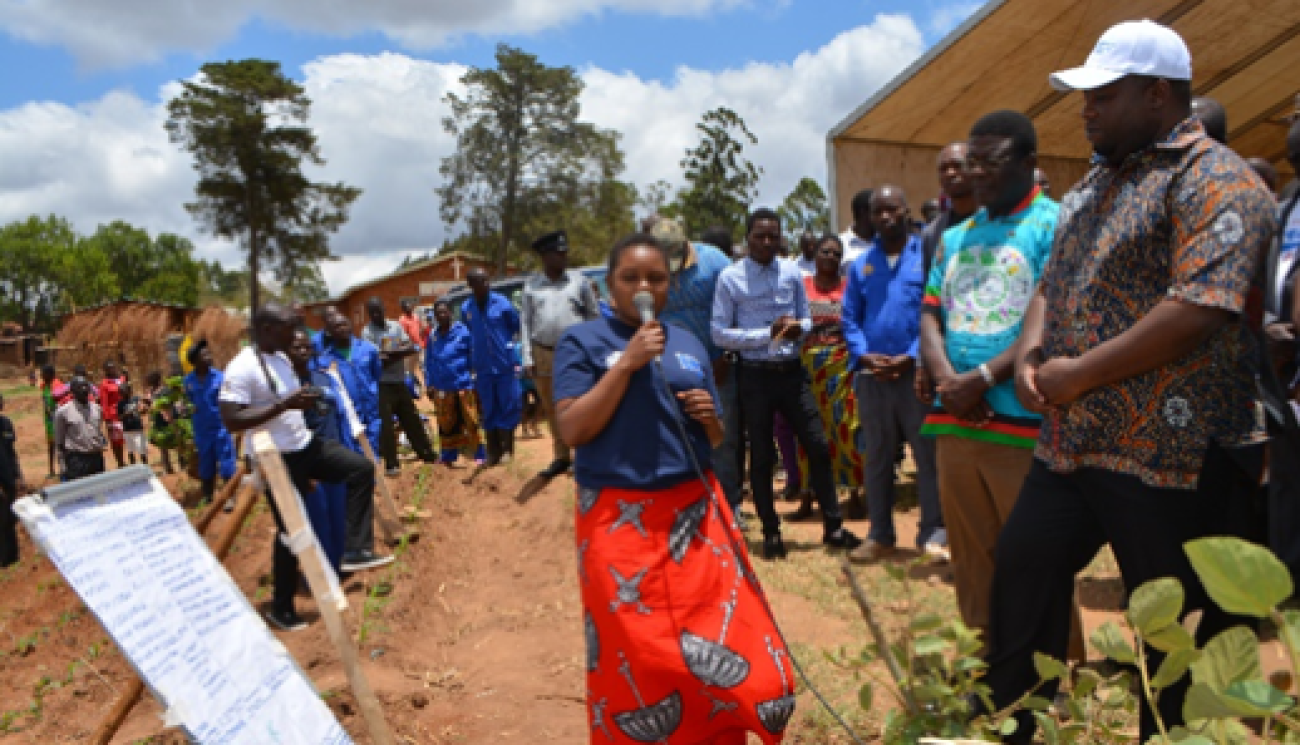In line with the World Food Day theme, “Our actions are our future. Healthy diets for a #Zero Hunger world,” FAO Malawi showcased interventions that are aiming at mainstreaming nutrition for improved and healthy diets.
Featuring activities that are being implemented in collaboration with the Government of Malawi under the European Union-funded KULIMA and Afikepo programmes, beneficiaries articulated how they are acquiring skills and knowledge in production, processing and utilization through community outreach approaches including care groups and farmer field schools (FFS).
“We are now able to tend to our crops better and conduct studies, such as those on fall armyworm management, as a means of improving practices for food security. Also, through participation in care groups, community members have learnt different recipes and preparation of nutritious meals for different age groups, to ensure that households not only produce but also consume the right mix of foods,” said Jane Kambanga, an FFS Community Based Facilitator and Care Promoter.
The Government of Malawi during this event, made a call for a change in the way that food is produced, supplied and consumed as a means of achieving healthy diets for all. For a Malawi, where 90 percent of the population relies on maize as a staple food this call reminded all stakeholders, at the event and beyond, to ensure diversified and nutritious diets as they work towards the sustainable development goal (SDG) 2 of Zero Hunger.
Minister of Agriculture, Irrigation and Water Development, Kondwani Nankhumwa, said that in addition to producing high-yielding staple crops, a diverse variety of foods is crucial for providing healthy diets and safeguarding the environment.
Furthermore, he emphasized efforts that the government is making for increased diversification saying: “Government is also promoting food diversification through development of policies, strategies and legal frameworks that favour intensified legume, horticulture, livestock and fish production in partnership with different stakeholders.”
On his part, the FAO Representative reaffirmed FAO’s commitment to supporting government efforts towards increased food security and the quest for healthy diets saying: “FAO also recognizes the national efforts in promoting sustainable and nutrition-sensitive food security, and has joined hands with government departments, development partners, academic institutes, NGOs and local communities, in promoting policy innovation, technical advance, institutional strengthening, and capacity development. The joint implementation of the EU funded Afikepo and KULIMA projects demonstrates examples.”
Aside from exhibitions from agriculture value chain stakeholders, commemoration activities included a field visit to a dairy bulking group, an irrigation scheme where farmers are using new technology to improve productivity, a peach orchard that provides nutrition and income for the owners, and to a household involved in keeping dairy cows. There was also an exhibition with stakeholder pavilions displaying activities under the broad themes of production, processing and utilization.




